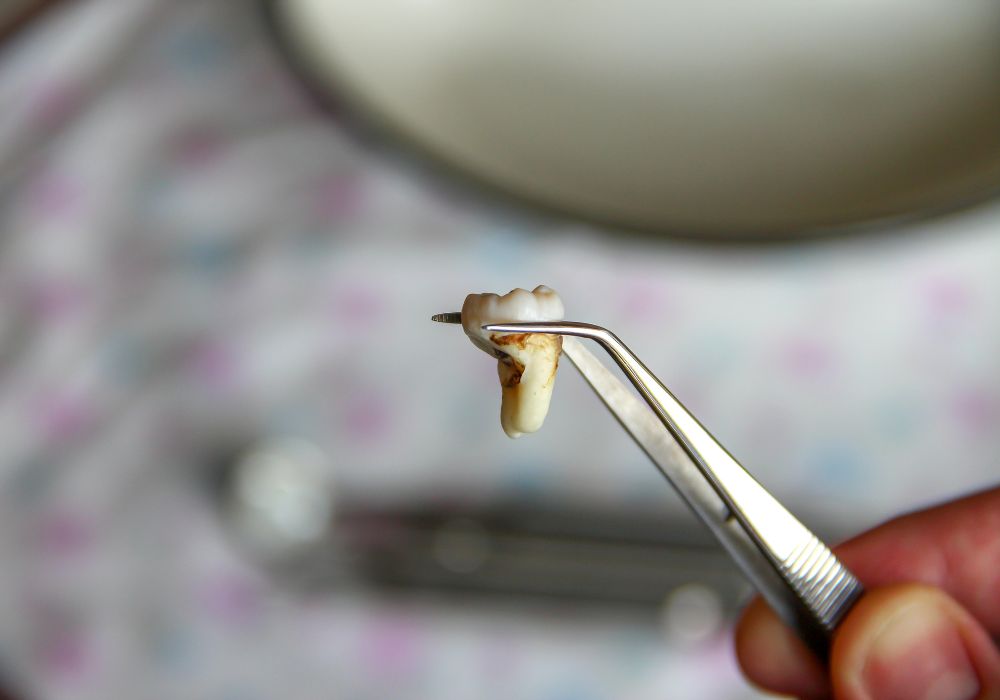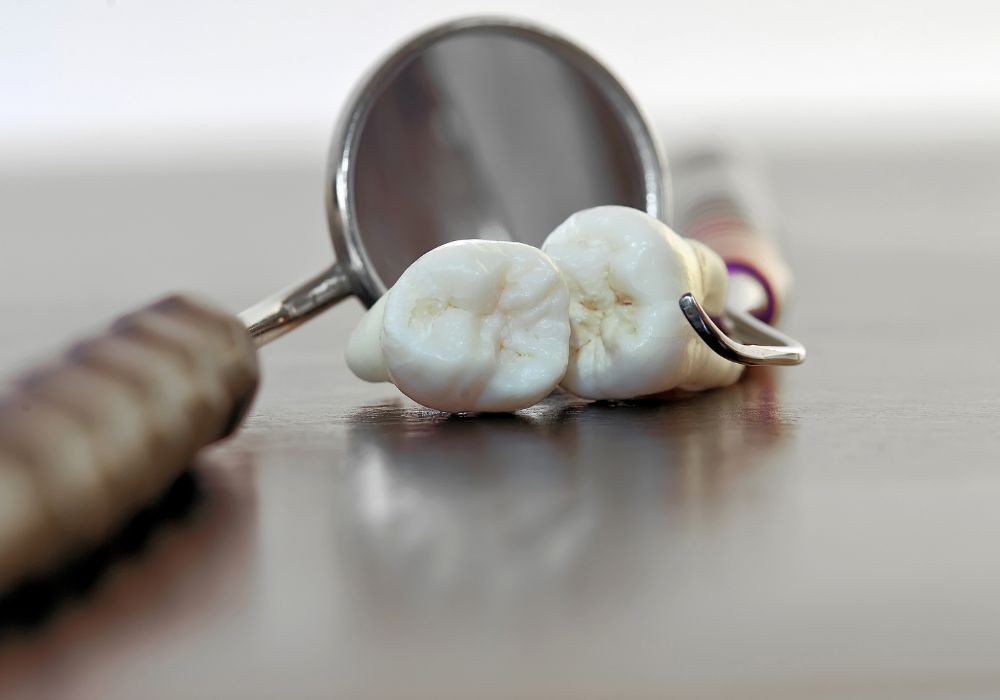Wisdom teeth, also known as third molars, are the last set of molars to erupt in the back corners of the mouth, usually between the ages of 17 to 25 years old. For many people, these teeth end up needing to be removed due to lack of sufficient space, development at odd angles, increased risk for decay and infection, or other issues caused by impaction. Unfortunately, wisdom tooth extraction carries a hefty price tag, often costing between $150 to $2,500 or more per tooth depending on various factors. Patients are often caught off guard by the high costs associated with getting their wisdom teeth taken out. But what exactly makes these extractions so expensive compared to other routine dental procedures?
The rest of the article examines the reasons behind the high costs of wisdom tooth removal, pricing variability among different oral surgeons, breakdown of the components involved, and strategies patients can use to lower expenses if faced with an expensive wisdom tooth extraction bill.
The high costs of wisdom tooth removal
Getting your wisdom teeth removed can be an expensive procedure, with costs ranging from $150 to $2,500 per tooth depending on various factors. But why exactly are wisdom teeth so costly to extract? There are several key reasons:
1. Oral surgeon fees
Wisdom tooth extraction is performed by an oral surgeon rather than a general dentist. Oral surgeons complete 4-6 additional years of specialized training beyond dental school and tend to charge higher fees for their advanced expertise. Most oral surgeons charge between $150 – $500 per wisdom tooth.
2. Use of anesthesia
The removal of wisdom teeth usually requires some type of anesthesia to numb the area during the procedure. This is an additional expense on top of the oral surgeon’s fees. General anesthesia performed by an anesthesiologist can cost up to $500 – $1,000 per wisdom tooth extraction. Even just local anesthesia or conscious sedation adds $50 – $200 per tooth.
3. Complexity/difficulty of the extraction
Not all wisdom teeth are created equal. Some extractions are quick and straightforward, while others are more complex and require cutting into bone or sectioning the tooth into pieces first. Complex cases take more time, effort, and expertise on the oral surgeon’s part, so they are naturally more expensive. Difficult wisdom tooth extractions can cost $300 – $600 per tooth.
4. Location of impaction
Where the wisdom tooth is impacted also affects the price. Easier to access teeth near the surface cost less than teeth that are fully encased in the bone or pushing on nerves. Impacted lower wisdom teeth are generally cheaper to remove than impacted upper teeth.
5. Use of surgical equipment
Wisdom tooth removal is a minor surgical procedure. It requires the use of surgical tools like elevators, forceps, drills, and other dental instruments to expose and extract the tooth. The cost of sterilizing and maintaining this equipment is incorporated into the overall fee.
6. Dental imaging
Prior to wisdom tooth extraction, patients need dental x-rays or a CBCT scan to evaluate the position of the teeth and plan the surgery. The cost of panoramic x-rays or CBCT imaging adds $100 – $250 to the total bill.
7. Follow-up care
Most oral surgeons schedule a follow-up visit around 1 week after the extraction to monitor healing and check for complications like dry socket. This follow-up exam is also factored into the initial cost.
Why pricing varies widely between dental providers?

The costs of getting your wisdom teeth removed can be drastically different depending on the oral surgeon you see. Here are some reasons for these pricing variations:
- Geographic location – Oral surgery fees are higher in major metropolitan areas compared to rural areas.
- Experience level of the surgeon – More experienced oral surgeons often charge higher rates. Newly graduated surgeons may offer discounted pricing.
- Type of practice – Oral surgeons working in hospital settings tend to have higher fees than independent practice owners.
- Accepted insurance plans – Surgeons who participate with more insurance networks have negotiated discounted rates. Out-of-network providers charge higher cash prices.
- Overhead expenses – Providers working out of new or upgraded facilities pass these costs down to patients.
- Complexity of services – Some surgeons specialize in complex wisdom tooth impactions and charge premium rates. Others only manage straightforward cases.
- Brand reputation – Oral surgeons with an excellent reputation in the community often price higher than average. Their years of positive patient experiences allow this.
To find the best value, patients should shop around with a few highly rated surgeons in their area and compare pricing. Having dental insurance coverage can also help significantly reduce out-of-pocket expenses.
Table comparing wisdom tooth removal costs by location and insurance coverage
| Location | Typical cost without insurance | Typical cost with insurance |
|---|---|---|
| Major metro area | $150 – $600 per tooth | $50 – $150 per tooth |
| Small city | $100 – $400 per tooth | $30 – $100 per tooth |
| Rural area | $80 – $250 per tooth | $20 – $75 per tooth |
What’s included in the total price?

The bill for getting your wisdom teeth extracted includes multiple components. Here’s an overview of what’s covered in the total cost:
- Initial consultation and clinical exam by the oral surgeon, including review of dental imaging
- Development of a treatment plan specific to the case
- Any necessary basic dental care prior to surgery, like fillings or antibiotic therapy
- Sedation methods like general anesthesia, IV sedation, or laughing gas
- Use of operating room or surgical suite
- Surgical removal of the wisdom teeth and any bone or tooth sectioning required
- Suturing and bandaging of the surgical sites
- Prescriptions for any necessary pain medications or antibiotics after surgery
- Post-operative exam(s) to check healing, typically 1 week after
- Responding to any post-op concerns or complications like excessive swelling, pain, bleeding, etc.
Itemized cost breakdown example
To give a better sense of the full costs involved, here is an itemized wisdom tooth extraction bill for a complex case requiring general anesthesia:
- Initial exam: $75
- Panoramic x-ray: $125
- IV sedation anesthesia: $600 ($150 per tooth)
- Operating room fees: $400
- Oral surgeon’s fee: $1200 ($300 per tooth)
- Surgical equipment sterilization: $150
- Prescription medications: $40
- 1 week follow-up visit: $75
Total: $2,665
As shown, even a basic extraction can quickly amount to thousands of dollars when all the factors are included. Patients with dental insurance can expect the total fees to be reduced significantly through negotiated rates and coverage.
Strategies to reduce wisdom teeth costs

If you’re facing expensive wisdom tooth extraction, here are some tips to minimize the costs:
- Get multiple estimates – Prices can vary greatly based on the surgeon.
- Use in-network providers – They offer better rates if you have dental insurance.
- Ask about payment plans – Many surgeons offer interest-free financing options.
- Have it done at a dental school – Dental students perform the procedures at reduced prices under faculty supervision.
- Have just the problem teeth extracted – Removing only the symptomatic teeth cuts costs.
- Talk to your employer – Some companies offer supplemental dental benefits.
- Use a dental savings plan – These provide around 10-60% off procedures.
- Apply for financial assistance – Some nonprofits and clinics offer help based on financial need.
- Consider dental tourism – Countries like Mexico offer very affordable options.
- Wait until you have better insurance – If the teeth aren’t causing immediate problems.
Frequently Asked Questions
How much does it cost to remove wisdom teeth with insurance?
With dental insurance, the typical cost per wisdom tooth is $50 – $150. Actual costs depend on your plan’s deductible and coinsurance rate for oral surgery. Getting pre-approval helps ensure you don’t get stuck with large out-of-pocket expenses.
Is it worth getting wisdom teeth removed?
It’s generally recommended to have asymptomatic wisdom teeth removed in your teens or early 20s to prevent future problems as the roots finish developing. If already causing issues like pain or infection, they should be extracted sooner. Talk to your dentist about the risks and benefits.
Can I refuse wisdom tooth extraction?
Yes, it is ultimately your choice whether to have wisdom teeth removed or not. Your dentist cannot force treatment without consent. However, retaining wisdom teeth does increase the long-term risks of pain, infection, crowding, cysts, and damage to nearby teeth and nerves.
Do wisdom teeth removal costs go down over time?
Wisdom tooth extraction costs have steadily increased over the past decades above the rate of inflation. Prices are expected to continue rising as wages for dentists and oral surgeons also increase. However, improved technologies and anesthesia options may offset some of the price growth in the future.
How can I stop wisdom tooth pain without removing them?
Conservative options to relieve wisdom tooth pain without extraction include over-the-counter pain medication, ice packs applied to the jaw, saltwater rinses, special medicated mouthwashes, and antibiotics if there is an underlying infection. But these are temporary measures if the teeth are impacted.







